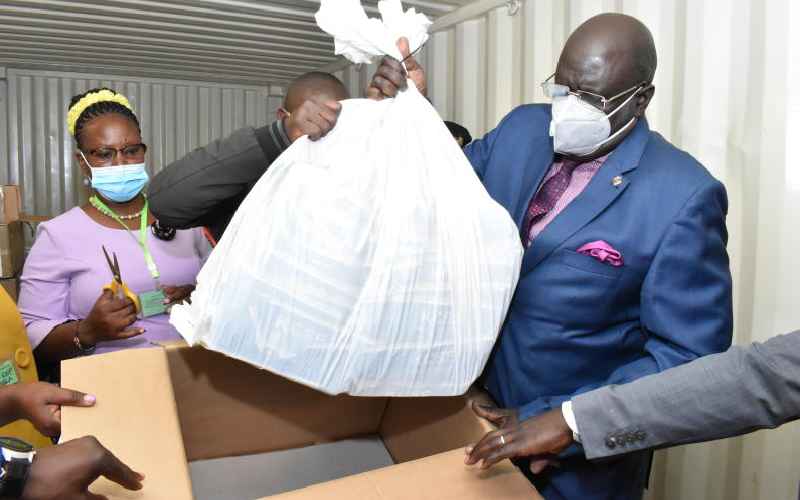×
The Standard e-Paper
Join Thousands Daily

Education CS Prof George Magoha unpacks examination material on day eight at Kibra Deputy County Commissioners Office. [Samson Wire, Standard]
Garissa, Wajir, and Mandera counties in North Eastern region have emerged as examination cheating hotspots, according to investigations by the Directorate of Criminal Investigations (DCI).